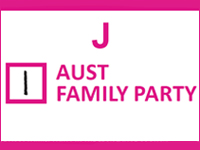 UK writer Hugh Rifkind once referred to politics as the only kind of fame which, once it’s over, is a relief. It’s the only form of fame that isn’t accompanied by adulation, he posited.
UK writer Hugh Rifkind once referred to politics as the only kind of fame which, once it’s over, is a relief. It’s the only form of fame that isn’t accompanied by adulation, he posited.
For many in professions other than politics, when their brilliant career is over and constantly being told how awesome they are is no more, it is hard to adjust. Suicide rates can be high.
However, if told every day you’re rubbish, and a moron, and a back-stabbing, self-enriching, egotistical fraud, then the eventual silence comes as a blessed relief. Suicide rates in politics are much lower than in other fame professions.
So we need not feel too sorry for all those MPs who lost their seats a fortnight ago.
As for the incoming government, boy have they got a hard row to hoe. I’m sure in their more reflective moments the Liberals are not entirely sorry they lost this one. They were going to lose eventually, and this was a good one to lose.
The next three years will be gruelling, and it is extremely doubtful that Labor and a Greens-dominated Senate will have what it takes.
There’s an old joke, ‘Optimists learn English, pessimists learn Chinese, and realists learn how to use an AK47.’
Labor and the Greens are none of the above.
As the English poet WB Yeats wrote:
“Things fall apart, the centre cannot hold …
… anarchy is loosed upon the world …
… and everywhere the ceremony of innocence is drowned;
The best lack all conviction, while the worst
Are full of passionate intensity.”
In the hundred years since Yeats wrote those words, little has changed.
Written just after the end of the 1st World War and during the tumultuous Russian Revolution, Yeats’ poem has been referenced in books, films, and world events from the apartheid struggle in South Africa to the Iraq war to the mass shooting in Texas last week.
“The best lack all conviction, while the worst are full of passionate intensity”.
If that line doesn’t sum up what’s wrong with the world at the moment, I don’t know what does.
There are the rare few who, according to American author and pastor Louis Albert Banks, “… have sailed through rough seas, carrying cargo and burdens as servants of God, and as helpers of others”, but so many of our best and brightest ‘lack all conviction’ and use their gifts to pursue self-indulgent lives, whilst the ambitious and power-hungry relentlessly pursue political power.
Speaking of which, when Kevin Rudd swept into office in 2007, people were saying this spelled the end of the Liberal Party and Labor would be in power for the next 20 years! A number of Liberals subsequently resigned from parliament not wishing to be in Opposition for years on end.
But Rudd so comprehensively stuffed things up, that within two years he was dumped by his own party and his successor had to rely on two disgruntled former National Party members to form minority government.
The next three years will be much, much harder for Albanese than it was for Rudd.
For a start, Rudd inherited from Prime Minister John Howard, Treasurer Peter Costello and Finance Minister Nick Minchin – the Treasurer controls the revenue, the Finance Minister controls the spending, and the Prime Minister gets the credit (for appointing them, and rightly so) – a budget surplus and zero government debt.
To quote Welsh singer Mary Hopkin, “Those were the days, my friend …”.
By contrast, Albanese has inherited a one hundred billion dollar deficit and a one thousand billion dollar debt.
Not only that, Rudd had only five Greens Senators to contend with. Albanese has 12.
Tackling government spending (childcare, aged care, housing, NDIS), labour shortages, rising interest (mortgage) rates, the highest inflation in most people’s lifetime, food prices, power prices, petrol prices and rent prices all going up, a mental health crisis among young people, volatile global events, and of course energy policy, will be virtually impossible.
To repeat those lines from Yeats’ poem:
“Things fall apart, the centre cannot hold …
… anarchy is loosed upon the world …”
I predict that the Liberals will secure a comfortable victory at the next election.
 The most conspicuous feature of this election was the presence of the powerful ‘Baptists & Bootleggers’ phenomenon.
The most conspicuous feature of this election was the presence of the powerful ‘Baptists & Bootleggers’ phenomenon. A number of years ago I was building a house at Magill in Adelaide’s east when one of our bricklayers arrived on site with his bull terrier dog. Bricklayers always preferred bull terriers as pets because if a brick accidently fell on the dog’s head, the dog didn’t feel it and in fact thought it was a game and waited for more bricks to be dropped.
A number of years ago I was building a house at Magill in Adelaide’s east when one of our bricklayers arrived on site with his bull terrier dog. Bricklayers always preferred bull terriers as pets because if a brick accidently fell on the dog’s head, the dog didn’t feel it and in fact thought it was a game and waited for more bricks to be dropped. This incident came back to me last Saturday afternoon when I was asked to look after a voter’s bull terrier dog while its owner went in to vote at the Munno Para early voting centre in Adelaide’s north. Long-standing Family Party member and volunteer Roger Potger snapped the accompanying photo and dubbed it ‘Dog Day Afternoon’.
This incident came back to me last Saturday afternoon when I was asked to look after a voter’s bull terrier dog while its owner went in to vote at the Munno Para early voting centre in Adelaide’s north. Long-standing Family Party member and volunteer Roger Potger snapped the accompanying photo and dubbed it ‘Dog Day Afternoon’. There’s a scene in the movie ‘Black Hawk Down’ where the sergeant yells to one of his soldiers, ‘Get in the truck and drive!’ ‘But I’ve been shot’, the soldier replies. ‘We’ve all been shot, now get in and drive’.
There’s a scene in the movie ‘Black Hawk Down’ where the sergeant yells to one of his soldiers, ‘Get in the truck and drive!’ ‘But I’ve been shot’, the soldier replies. ‘We’ve all been shot, now get in and drive’. A political candidate was asked where he stood on the issue of duck shooting.
A political candidate was asked where he stood on the issue of duck shooting. At the recent State election we drew box J, the 10th letter of the alphabet. Readers may recall the reference to the 10th letter of the Hebrew alphabet ‘Yud’ in a recent
At the recent State election we drew box J, the 10th letter of the alphabet. Readers may recall the reference to the 10th letter of the Hebrew alphabet ‘Yud’ in a recent  Consider for a moment the humble postage stamp. Its usefulness lies in its ability to stick to one thing until it gets to where it has to go.
Consider for a moment the humble postage stamp. Its usefulness lies in its ability to stick to one thing until it gets to where it has to go. As most members would know, last year the major parties increased the minimum number of members a party needs in order to gain federal registration from 500 to 1,500 – a threefold increase (what did Adam Smith say about ‘industry incumbents banding together to keep out new entrants’?) This ruled out the Australian Family Party running in the forthcoming Federal election.
As most members would know, last year the major parties increased the minimum number of members a party needs in order to gain federal registration from 500 to 1,500 – a threefold increase (what did Adam Smith say about ‘industry incumbents banding together to keep out new entrants’?) This ruled out the Australian Family Party running in the forthcoming Federal election. In the aftermath of the election, it looks likely that Labor will govern with an absolute majority of at least 7 seats in the House of Assembly and will gain an extra seat in the 22-seat Legislative Council, taking its tally to 9, the Liberals 8, Greens 2, SA Best (who were not up for re-election) 2, and One Nation 1. The government should have little trouble getting its agenda through the parliament with that composition.
In the aftermath of the election, it looks likely that Labor will govern with an absolute majority of at least 7 seats in the House of Assembly and will gain an extra seat in the 22-seat Legislative Council, taking its tally to 9, the Liberals 8, Greens 2, SA Best (who were not up for re-election) 2, and One Nation 1. The government should have little trouble getting its agenda through the parliament with that composition. In his excellent book Blink! Malcolm Gladwell describes how it is possible to weigh up situations in the ‘blink’ of an eye.
In his excellent book Blink! Malcolm Gladwell describes how it is possible to weigh up situations in the ‘blink’ of an eye. Voters can choose whether to vote above or below the line – but not both. Voters can also choose whether to number just one box above the line, all 19 boxes above the line or any number in between. If voting below the line, a voter must number a minimum of 12 boxes.
Voters can choose whether to vote above or below the line – but not both. Voters can also choose whether to number just one box above the line, all 19 boxes above the line or any number in between. If voting below the line, a voter must number a minimum of 12 boxes. “It is dangerous to make predictions – especially about the future.”
“It is dangerous to make predictions – especially about the future.”